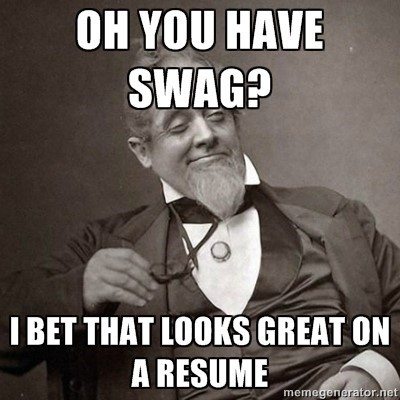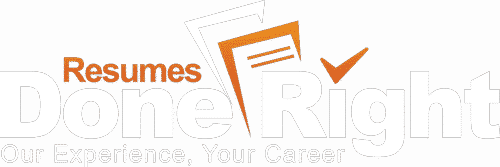
Ok, in my last blog we talked about how to best present you career history. I established that teaching your recruiter how to suck eggs (telling the recruiter things they already know for those of you unfamiliar with that phrase) isn’t a game plan that often works out. In brief tell them what your job was, then tell them how well you did it utilising as many figures as you can to catch their eye and make them want to know HOW you achieved this success. They will call you to find out and this again, is the entire purpose of a CV.
Ok, so today I want to help you finish off your CV. This bit is simple. Keep it short and sharp.
Education, Qualifications & Training. Extended personal contact details (if required). All in dot points. Done!
The very last Rule!
Rule # 3
Rule #3 of your CV is your references. This is a controversial topic and a million recruiters out there are about to form a lynch mob and come after me for saying this.
Don’t publish your references.
References should always be “upon request” don’t let your recruiter use you for their business development without helping you first! They can see who you’ve worked for, but let them call you for those details. Remember, you want them to call you, at that stage, regardless of ulterior motive, you have a chance to show them what you are worth.
Now to your cover letter!
The big questions surrounding cover letters is: Does it get read? Can you actually use a cover letter to your advantage? The short answer is, probably not. Can we create a cover letter that gets read? Maybe, but you’ll need to make sure it holds some value.
To start with, if your current cover letter starts with “Dear Sir/Madam” and doesn’t say anything that’s not already in your CV delete it.
*gasp* that sounds a bit rude doesn’t it!? It’s the truth. Unfortunately, it won’t get read and starts off the recruiter’s introduction to you with an eye roll and the taste of disappointment that you didn’t even read their Ad to the bottom where their name generally is.
If you are going to send a cover letter, the only thing to have in it is examples of where your experience matches the role you are applying for. Especially where the Ad requires you to meet the selection criteria. (In this circumstance the cover letter is of maximum importance) To do this you need to rewrite it every time you apply to a role. Ask anyone who’s worked in recruitment they’ll say the same thing.
Read the ad before writing your cover letter. Arguably ALL roles out there require attention to detail, some more than others, and on those the guys I work with like to put a little test in their ads. From time to time, somewhere in the middle of the ad they will tell the applicant to address their CV to a particular person, or put a particular subject line in the email. Most recently it was “Please write the subject of your application as: A web developer for the guys at Transparency IT.” Then didn’t open any application that didn’t have this. It showed a lack of 1. Ability to follow instruction 2. Attention to detail and 3. That they didn’t care enough about the opportunity that was offered to them to read the ad.
Please learn this mistake from others. Read the ad!
Tricks to an effective cover letter:
- If you want to send a cover letter, call before you apply. It shows interest, allows you a chance to create a “bond” with the person recruiting for the role and allows you to quickly establish if the job is worth your time applying for. Ask the recruiter this question “What are the one or two most important deliverables for this role that will make or break the successful applicant in the first 6 months?” This is a bit of a trick. Not only are you going to impress the recruiter with your attitude, you are creating a focus for the recruiter, then blitz this in your cover letter. The old set-up and score.
- Given you have called first, address the cover letter to the recruiter. Personally addressing it will give it a chance of being read only if you have spoken to them first.
- Make sure you address the one or two most important aspects of the job you are applying for that are key to success in the role.
(as per your question in step 1., match it to where you have awesome experience and can prove it. E.g. Thanks for having a chat with me today Jeff re: Project Manager position for NASA. I am particularly excited about X & Y aspects of the role. As you can see in further detail in my CV, I have excelled in these areas delivering A & B ahead of time and below budget. Of particular interest is my time spent with MNO pty ltd where I was tasked with “that” and achieved “this” by using “these” processes yadda yadda yadda, you get the point.
By doing this you are making it easy for the recruiter to justify giving you the role…..and that is the way to get an interview. You helped them focus on the 1 or 2 things that are the most important, you’ve shown them that you’ve met and exceeded the expectations in that area andyou have directed them to skip the “not so important” to this role parts of your CV to read the appropriate parts. Make the most of those important 5 – 7 seconds…
This finishes up my blog rant on CV’s and cover letters. It’s a skill I personally didn’t recognise as being as important as it is until I saw the sheer volume of CVs the recruitment world puts in front of you. If you need to spend a whole day or even 2 reviewing your CV, searching on the net, speaking with old colleagues to get stats, figures and results on old positions, re-writing and re-writing your CV till you have something that delivers your experience and ability to deliver in a punchy, no nonsense format then it was time well spent.
If you can get your CV down to two or three pages you are doing well. Some high level CV’s (where the company & position do all the talking) you can even get your CV down to a single page of delivered results. That’s a CV that delivers the “You must call me” message in 5 to 7 seconds… Good luck and get onto reviewing that CV!
I hope you’ve enjoyed “Jimmy’s Guide to a Cracking CV” and hope you took something out of it, even if it’s “that guys a nut case and doesn’t know how to write a CV. I’ll show him a good CV!” Because that’s the whole purpose here, to share ideas, improve the average quality of CV and help people get employed.
Your thoughts?
Cheers,
James

